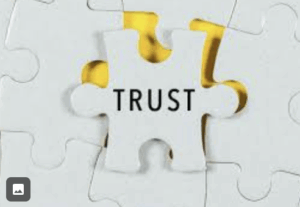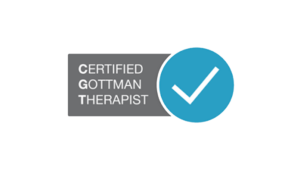When it comes to treating mental health conditions like depression, anxiety, and bipolar disorder, the path to recovery often involves multiple approaches. Two of the most common and effective treatment methods are therapy and medication. While each can be highly beneficial on its own, research shows that combining the two often leads to the best outcomes for individuals managing mental health issues. In this blog post, we’ll explore the benefits of combining therapy and medication, how they complement each other, and why this integrative approach can lead to more sustainable and lasting improvements in mental health.
The Role of Medication in Mental Health Treatment
Medication plays a crucial role in managing the symptoms of mental health conditions by targeting the biological aspects of these disorders. Medications such as antidepressants, anti-anxiety medications, mood stabilizers, and antipsychotics are often prescribed to help regulate brain chemistry and alleviate the intensity of symptoms.
1. Symptom Relief
Medications work by adjusting chemical imbalances in the brain that contribute to mood disorders, anxiety, or other mental health issues. For example, antidepressants help increase serotonin levels, which can improve mood and reduce feelings of sadness or hopelessness. Medications like SSRIs (Selective Serotonin Reuptake Inhibitors) or benzodiazepines are commonly used to help manage symptoms of anxiety and depression.
For individuals experiencing severe symptoms—such as panic attacks, suicidal thoughts, or extreme mood swings—medication can provide immediate relief, allowing them to regain stability and improve their ability to function in daily life.
2. Supporting Brain Function
Certain mental health disorders, including schizophrenia and bipolar disorder, require medication to stabilize brain activity. Antipsychotic medications and mood stabilizers can help regulate mood swings, reduce hallucinations or delusions, and keep the mind functioning more consistently.
3. Enhancing Focus and Energy
For individuals struggling with concentration, energy levels, or motivation—common in depression and anxiety—medication can help alleviate these symptoms. By improving mood, focus, and energy, medication creates a foundation upon which therapy can be more effective.
The Role of Therapy in Mental Health Treatment
Therapy addresses the emotional, cognitive, and behavioral aspects of mental health conditions. It focuses on providing individuals with the tools and strategies needed to manage their symptoms, improve coping mechanisms, and foster long-term emotional health.
1. Addressing Underlying Issues
Therapy allows individuals to explore the root causes of their mental health struggles, such as unresolved trauma, negative thought patterns, or dysfunctional behaviors. Cognitive Behavioral Therapy (CBT), for example, helps clients identify and challenge distorted thinking patterns that contribute to their depression or anxiety. Over time, therapy helps individuals develop healthier ways of thinking and responding to life’s challenges.
2. Developing Coping Strategies
While medication can reduce symptoms, therapy teaches individuals how to manage their condition in the long term. Techniques such as mindfulness, relaxation exercises, and emotional regulation can help individuals cope with stress, triggers, and setbacks. Therapy provides a personalized set of tools that individuals can use to manage their mental health on a day-to-day basis.
3. Improving Relationships and Communication
Therapy offers a safe space for individuals to work on their relationships with others, helping them communicate more effectively, set boundaries, and navigate conflicts. Mental health conditions often impact interpersonal relationships, and therapy can help restore balance and improve connections with loved ones.
4. Building Self-Awareness and Empowerment
Therapy helps individuals gain greater self-awareness, allowing them to understand their mental health condition and how it affects their lives. By fostering a sense of empowerment, therapy encourages individuals to take control of their mental health journey, set realistic goals, and take positive steps toward healing.
How Therapy and Medication Complement Each Other
When combined, therapy and medication offer a comprehensive approach to mental health treatment that addresses both the biological and emotional components of mental health conditions. Here’s why this combination is so powerful:
1. Medication Stabilizes, Therapy Heals
Medication can provide the immediate relief needed to stabilize symptoms, particularly in cases of severe depression, anxiety, or psychosis. However, medication alone doesn’t address the underlying psychological or emotional issues that contribute to these conditions. This is where therapy plays a crucial role. While medication stabilizes the mind, therapy helps individuals process their emotions, develop coping strategies, and address the root causes of their mental health struggles.
2. Improved Engagement in Therapy
When mental health symptoms are severe, such as in cases of major depression or panic disorder, it can be difficult for individuals to fully engage in therapy. Medication can help alleviate the most debilitating symptoms, allowing individuals to participate more actively in therapy. With improved focus, mood, and emotional stability, therapy becomes more productive and meaningful.
3. Long-Term Management
While medication can effectively manage symptoms, therapy provides individuals with long-term tools to maintain their mental health. Therapy teaches individuals how to cope with stressors, prevent relapse, and build resilience. Over time, individuals may even reduce their dependence on medication as they become more adept at managing their condition through therapeutic techniques.
4. Addressing Co-Occurring Conditions
Many individuals with mental health conditions also struggle with other issues, such as substance abuse, trauma, or relationship problems. Therapy can address these co-occurring conditions, helping individuals work through complex emotional challenges, while medication manages the immediate symptoms of their primary mental health condition.
5. Holistic Healing
Mental health conditions are multifaceted, often involving a combination of biological, psychological, and environmental factors. By combining medication and therapy, individuals receive a more holistic approach to healing. Medication helps balance brain chemistry, while therapy addresses the emotional, cognitive, and behavioral aspects of mental health, resulting in a more complete treatment plan.
Who Benefits from a Combined Approach?
A combination of therapy and medication is often recommended for individuals experiencing, but not limited to:
- Severe Depression: Individuals with major depression may find that medication helps lift their mood enough to engage in therapy, where they can work on addressing the root causes of their depression and building healthier coping mechanisms.
- Anxiety Disorders: For those with generalized anxiety, panic disorder, or obsessive-compulsive disorder (OCD), medication can help manage overwhelming anxiety symptoms, while therapy teaches strategies for managing anxious thoughts and behaviors.
- Bipolar Disorder: Medication is essential for stabilizing mood swings in bipolar disorder, but therapy can help individuals develop better coping skills, understand their triggers, and improve relationships.
- PTSD and Trauma: While medication can help alleviate some of the symptoms associated with trauma, such as insomnia or anxiety, therapy (such as EMDR or CBT) is crucial for processing and healing from the traumatic event.
- Chronic Conditions: For individuals with chronic mental health conditions, combining therapy and medication can provide a long-term management strategy that balances symptom relief with emotional healing and resilience-building.
Conclusion
The combination of therapy and medication offers a well-rounded, integrative approach to mental health treatment. While medication helps manage symptoms, therapy addresses the underlying causes, fosters personal growth, and equips individuals with the tools they need for long-term well-being. For many people, this combined approach leads to better outcomes and more sustainable improvements in mental health.
At Kingston & Co Counseling, we believe in a comprehensive approach to mental health care. Whether you’re exploring medication, therapy, or both, our experienced team is here to help you find the treatment plan that works best for you. If you’d like to learn more or schedule a consultation, please contact us. We’re here to support you on your journey to healing and wellness.







